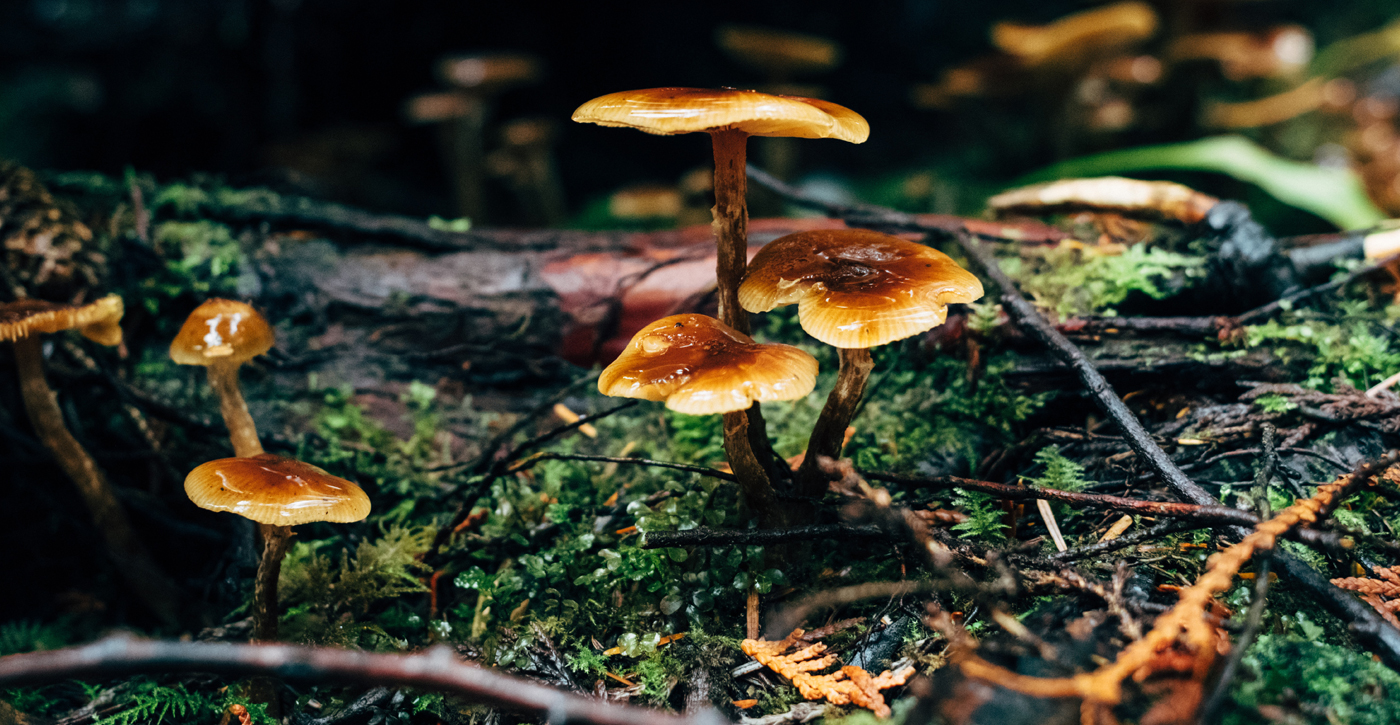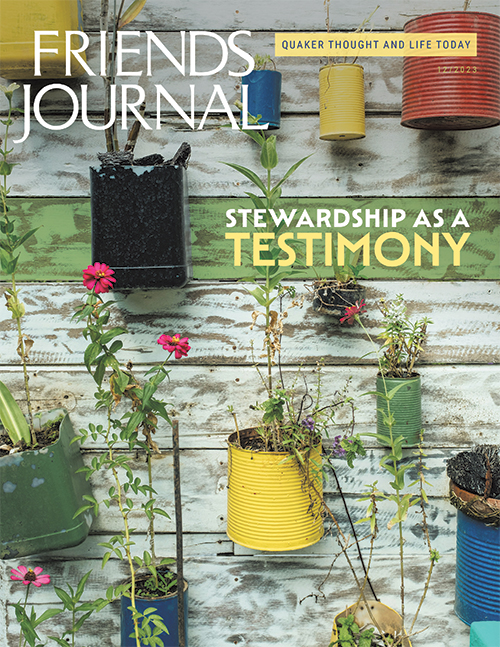The Dedicated Stewardship of a Nontheist
It was March and I was at a retreat at Woolman Hill, a Quaker center in western Massachusetts. After worship, I quietly got my jacket and left the building, walked across a field to where the ground began to slope down, and broke into a run. I ran all the way down to where a stream was turned into a pool by an earthen dam. A small culvert allowed a trickle of water to continue downhill, and I suddenly decided to take a drink.
I ducked under the culvert and reached out a cupped hand to catch the water. With the water in my hand, I said aloud, “Here we are. You pour; I drink.” And in my head a silent correction happened, something to the effect of That’s not quite right. And when I asked, What? immediately new words arrived in my mind: I pour; I drink.
What could this mean? As I walked back up the hill, I knew myself to be simultaneously an integral component of earth-planet-life and an ordinary human being walking on two legs. I had a name and a family and a car to carry me home, but I knew my human self to be a tree-equivalent, a component of the planet. As with a palimpsest, where the old text can still be read when new text is inscribed on top, the old showed through the new and both were present.
This was both scary and exhilarating, It permanently changed my sense of self and of reality. It was real and powerful and has not diminished over time. I merged into a larger identity, namely the whole planet. There is only one Thing—the whole What-Is—of which each of us is a miniscule part. In a sense, I dissolved into the larger entity, but I was still there.
This is the true identity of all of us humans. We are components of earth-life, but each individual of us is still here. The term relationship implies at least two entities, but there is really only one: our relationship to the earth is that of participants.
What is stewardship?
For years, I’ve been adding native plants to our yard and removing non-native species, and I’m active in groups promoting this change. Our car is a hybrid and we seldom add gas. We use fans rather than air conditioners. I don’t know whether these actions for the health of the planet should be called stewardship.
The concept of stewardship is lifted whole out of human societal arrangements. It originated within hierarchical human relationships and in ownership. There is an owner—not present—who has left some property in the hands of a trusted other, who is to manage the property as best they can, on behalf of the owner. With I pour, I drink, it is clear that I am a participant in the great What-Is: no split, no hierarchy. There is a continuity in which I participate, which includes all aspects of the world, including sub-visual and inorganic entities. All participate in the natural world, and together we add up to a functioning planet.
When I act for the health of the planet, it’s not on behalf of an absent owner. I am doing it for myself: the big myself, the limitless myself, which includes everything else. Together we are a single organism. Separateness is an illusion. In fact, interdependence (if the concept is based on the separateness of participating entities) is an illusion. The terms we use, such as human and tree, organic and inorganic, imply separateness, but really we are all one.
Fungi and the holy universe
For most of my life, I was not aware of the role of fungi in earth life. I thought mushrooms were plants, and I had never heard of mycorrhizae. I didn’t know that fungi enabled the development of both the plant and animal life of our planet, and that even now fungi keep the plant and animal realms going.
Today I am aware that fungi are responsible for inter-plant messaging and the availability and sharing of nutrients. Fungi have been basic to the evolution of the living world and to its functioning. When I learned that tiny underground organisms connect life forms miles apart that support my existence, I was flooded with awe. Is this the world? Yes, this is the world. Entities we never knew about evolved along with the rest of us and help it all work. Reality is more than we can see; more than we can hold cognitively.
In the universe everything that evolves is an aspect of the whole, and whatever follows or develops has been inherent from the beginning. Thomas Berry calls it “a community of subjects, not a collection of objects.” And it’s all holy. What do I mean by that? When I try to put all this together in my mind, I am flooded with awe.
I call myself a nontheist Friend. Please notice that I speak of holiness of the universe—the great What-Is—on the basis of my experience of awe but without reference to a deity. It would be nice to believe that there is a God owner and we care for the earth as stewards left in charge, responsible to that Mysterious Entity for doing the job well. But that’s not the way my mind works. I am confident that I am in unity with what is being done for the planet’s health by hard-working, dedicated stewards of “God’s” earth, and I love them.
For me, the concept of “stewardship” doesn’t fit. I recall that Buddhist teacher Joanna Macy said she was “a part of the forest that could think and speak” on behalf of the forest. My experience is similar. I am a part of the earth that can think and speak for this planet. I try to be a helpful participant.




I find Mary Gilbert’s essay to be lovely, and very true.
I naturally join it with the work of The Deeptime Network and of Brian Swimme.
Both are Googleable, if these links don’t survive.
https://dtnetwork.org/deep-time-perspective/
https://youtu.be/pSh-pQuExB8?t=27084
When a MfW becomes settled or centered I have sense of being part of an indefinable whole which exists whether I am part of it or not. In a sense this whole is always there waiting for us to connect with it. We do this more effectively as a collective than as a lone individual hence the power of Quaker Meeting for Worship compared to prayer on one’s own. I like to think that is how Jesus worked together with his followers, and his disciples in particular, although we are not told any of this in the texts handed on to us.
I understand the sentiments expressed in this article. However, I am more sympathetic with the sentiments in the canticle (song) of St. Francis of Assisi: https://ignatiansolidarity.net/blog/2015/06/04/canticle-of-brother-sun-and-sister-moon-of-st-francis-of-assisi/
Here he refers to the Sun, the Moon, and other aspects of nature as brothers and sisters, not as being in an “I – I” relationship with himself.
Even trinitarians, who theoretically believe in monotheism, stretch the concept of oneness by cloaking the trinity with the word mystery: God is one, and God is three in one.
On a more mundane note, I am loathe to associate myself too closely with nature, for, as Tennyson once noted, nature is red in tooth and claw. Stream water is notorious for carrying giardia, so why would I want to take own up to serving that to myself?